What Fruits Are Good for What Condition: A Full Review
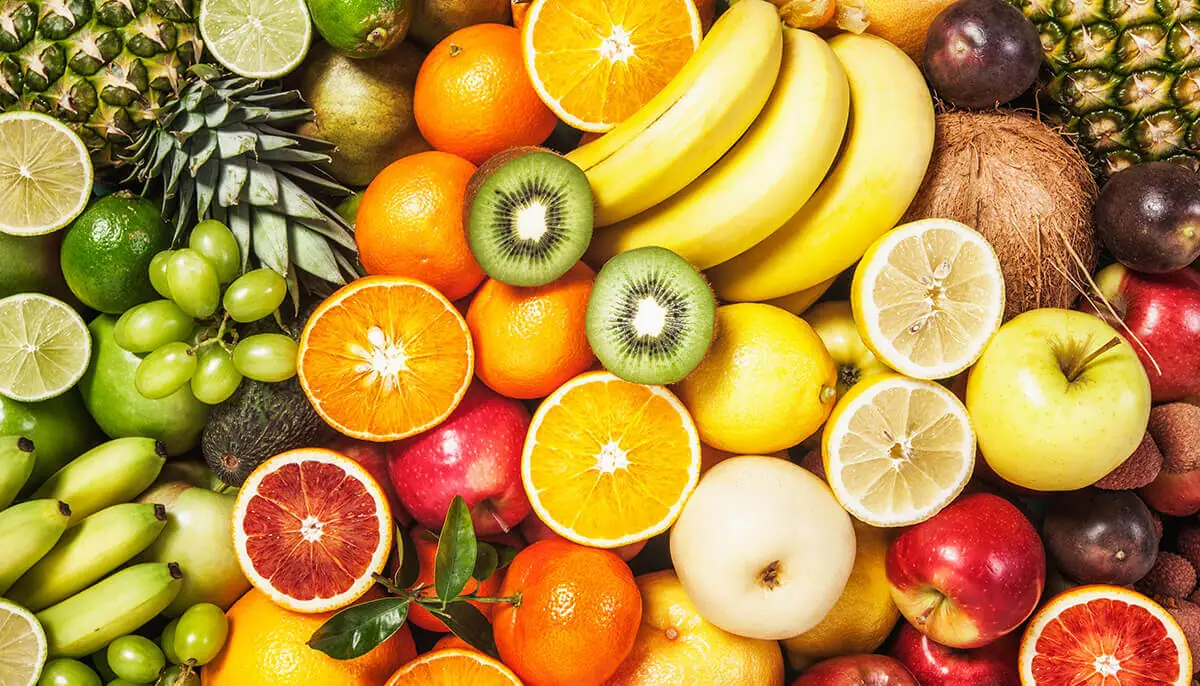
Fruits are known to contain all kinds of vitamins, dietary minerals, and beneficial bioactive compounds. What fruits are good for what health condition? Which of them to choose if you have a particular chronic illness? Here is a detailed answer to these questions.
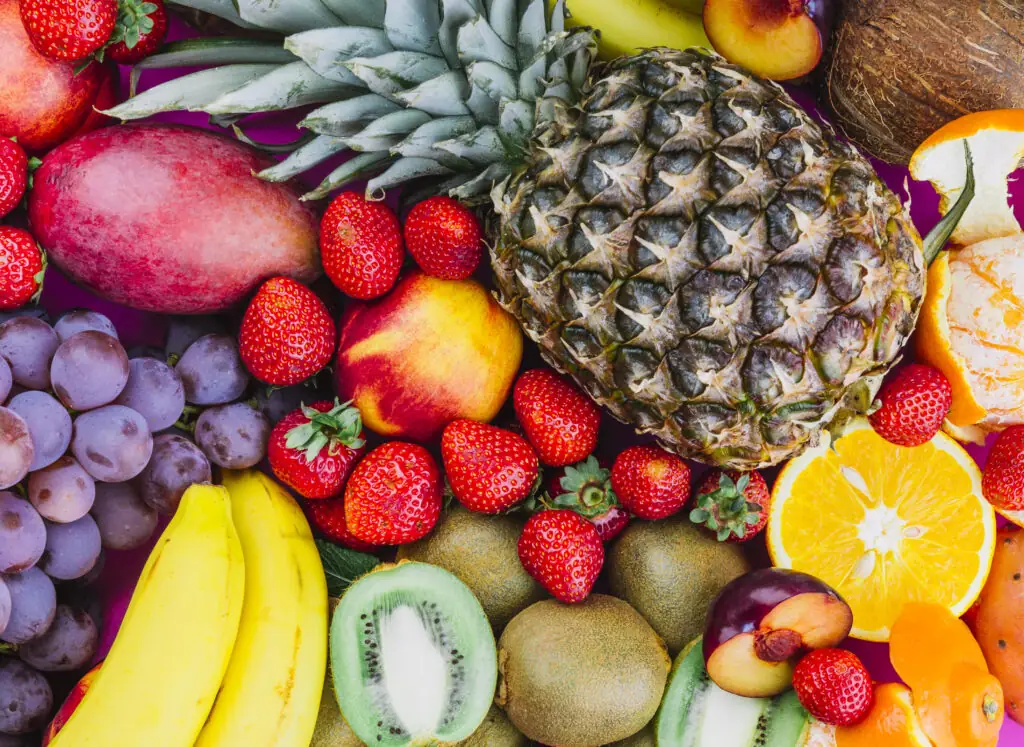
What Fruits are Good for Anemia and Iron Absorption?
First of all, there can be numerous causes of anemia, and if you have this condition, you need to get professional advice from an experienced health professional. Here are some of the more common factors that can lead to anemia development:
- Inadequate vitamin C intake. Also called ascorbic acid, this vitamin is extremely important for boosting iron absorption from plant sources. Use such vitamin C-rich fruits as kiwifruit, lemon, lime, papaya, and pineapple. Also, note that blackcurrant is a true superstar when it comes to vitamin C content, and such vegetables as bell peppers, kale, and broccoli are even better sources of ascorbic acid than lemons and limes;
- Inadequate citric acid intake. Like vitamin C, citric acid can improve iron absorption from non-animal sources. Include in your diet lemons, limes, grapefruits, and other fruits that belong to the citrus family.
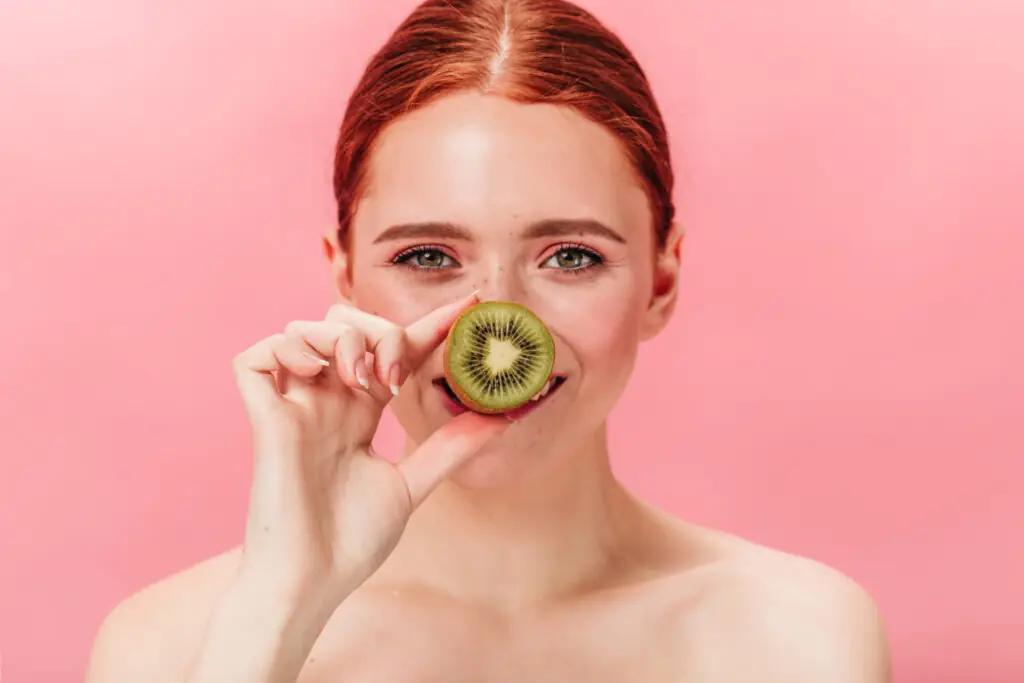
- Inadequate iron intake. Fruits, in general, are not very good sources of iron, so dried apricots, prunes (dried plums), and prune juice are the only viable fruit options you have. Beef, chicken liver, oysters, clams, mussels, and tuna offer considerably higher quantities of iron in its more easily absorbable heme form. When it comes to other plant sources, quinoa, potatoes, raisins, spinach, beans, hazelnuts, and cashews will be good choices.
- Inadequate vitamin B12 intake. Vitamin B12 (cobalamin) is an extremely important cofactor in iron absorption. Unfortunately, you cannot get cobalamin from any fruit as it can only be obtained from animal sources (beef liver being one of the better choices). If you are a vegetarian, you need to either use B12-artificially fortified foods like special breakfast cereals and kinds of milk or rely on food supplements.
- Inadequate folate (vitamin B9) intake. To act as a cofactor in iron absorption, vitamin B12 needs to be activated by folate (vitamin B9). You can get folate from such fruits as avocados; still, nuts and vegetables (peanuts, walnuts, chickpeas, sunflower seed kernels, asparagus, broccoli, and beets) are known to have higher concentrations of folate.
To sum it up: people who suffer from anemia or poor iron absorption need to enrich their diet with kiwifruits, lemons, limes, blackberry, avocados, dried apricots, and prunes (dried plums).
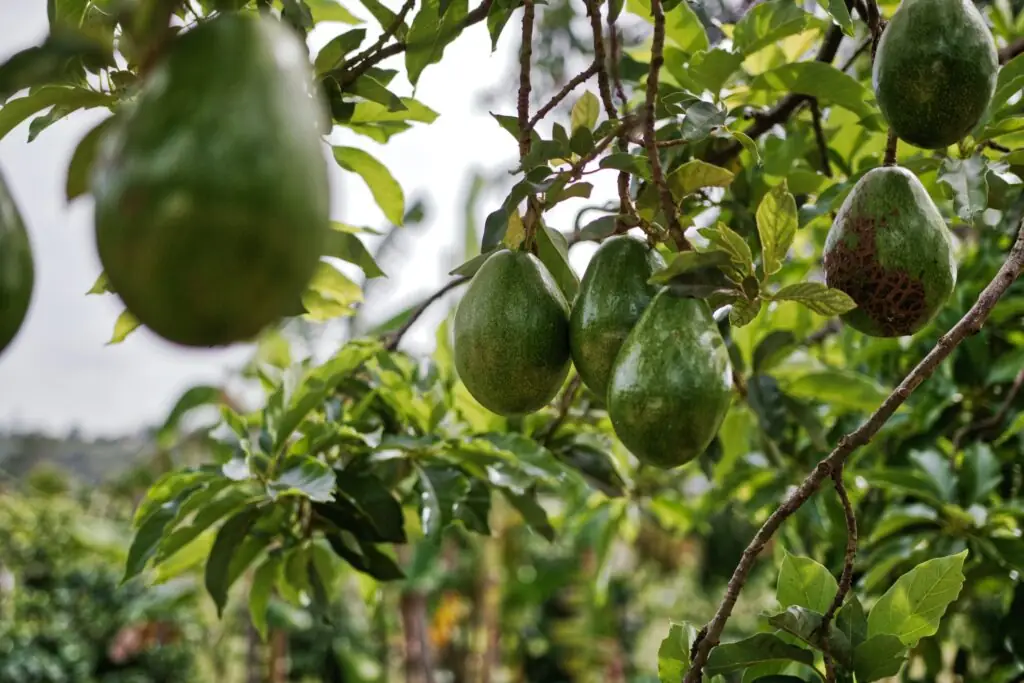
What Fruits Are Good for a Cold to Boost Your Immune System?
If you’ve got a cold and want to stimulate immunity, here is what you should try:
- Vitamin C. Ascorbic acid is truly king when it comes to giving your immunity a boost. While such popular fruits as lemons and limes are relatively rich in vitamin C, kiwis, and papayas contain even more of it. Contrary to popular misconception, vegetables are also very good sources of ascorbic acid: bell peppers of all colors, kale, broccoli, cauliflower, and cantaloupe should not be overlooked. What’s more, blackcurrant should be your very first choice if you want to get as much ascorbic acid as possible.
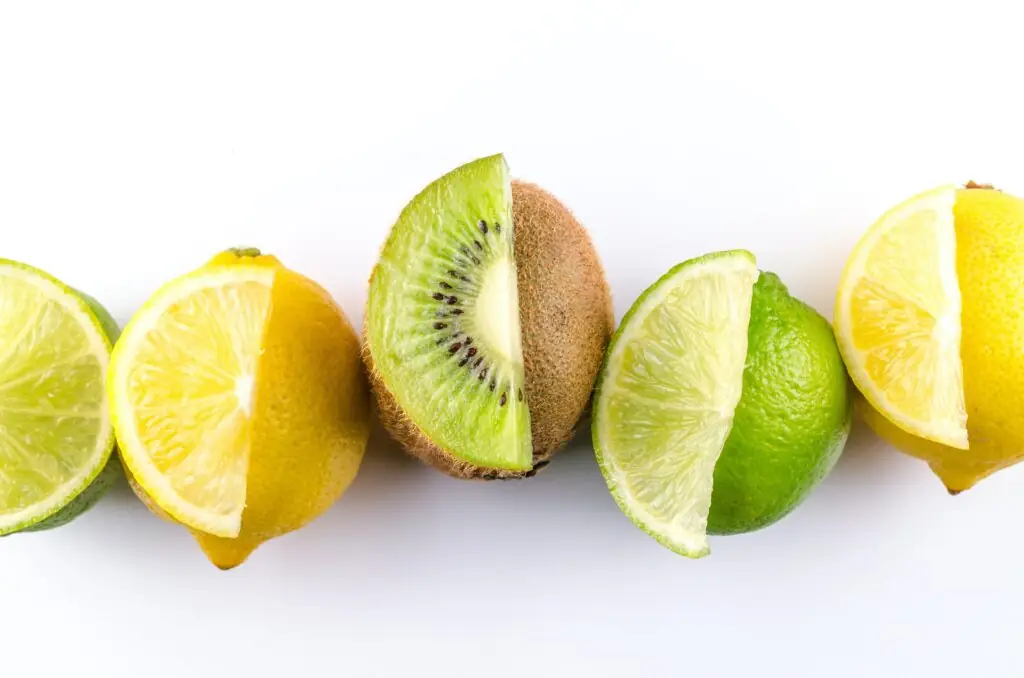
- Zinc. Zinc deficiency is known to impair immunity, and it is believed that nearly 30% of older adults suffer from this condition. Fruits, in general, are not very good sources of this mineral: although there are some quantities of it in avocados (as well as in blackcurrant), such vegetable foods as pumpkin and sunflower seeds, almonds, beans, and whole grains contain significantly more zinc. What’s more, if you want to get as high quantities of this mineral as possible, you need to eat meat and fish.
- Vitamin A. Research demonstrates that people who have a deficiency of this vitamin can be prone to infectious diseases. Apricots (especially dried ones) are a very good source of vitamin A; tangerines, mango, papaya, guava, and watermelon also contain this vitamin and are definitely worth including in your diet. When it comes to vegetables, carrots, sweet potatoes, spinach, and kale are the best possible choices.
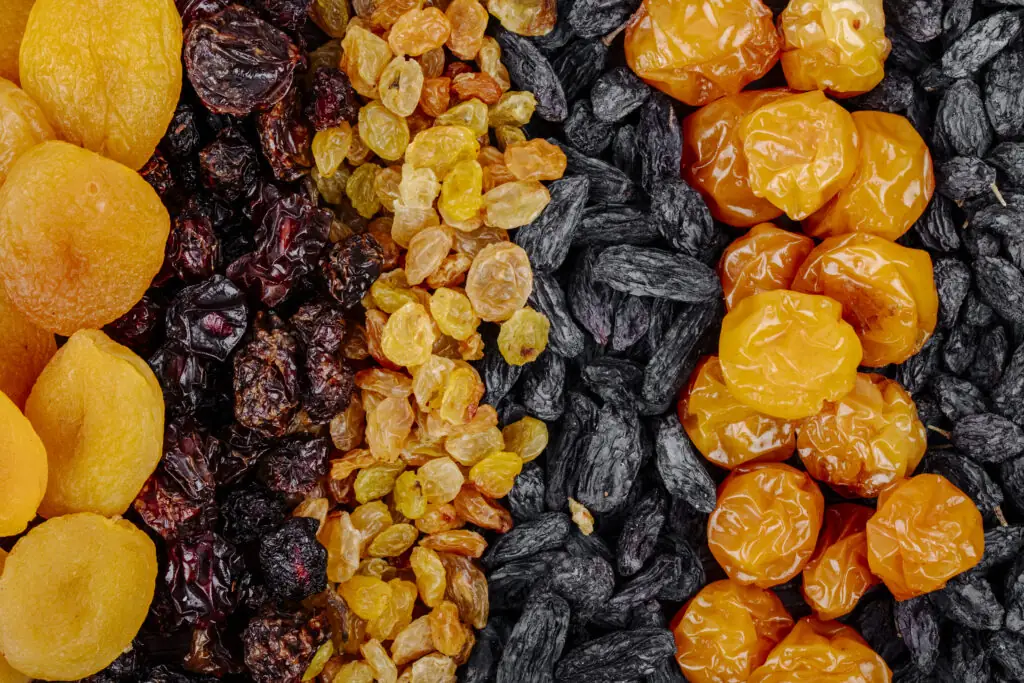
- Vitamin E. This vitamin (also called tocopherol) was demonstrated to enhance immune responses and decrease susceptibility to respiratory infections. Dried apricots are an excellent source of vitamin E; what’s more, you can also find measurable amounts of it in avocados, mango, kiwifruit, and blackberry.
To sum it up: if you want to boost your immunity, you need to add dried apricots, blackcurrant, avocados, kiwifruit, lemons, limes, watermelons, and papayas to your diet.
What Fruits Are Good for Your Eyes and Skin?
To support good eye and skin health, you need to make sure that your diet is rich in vitamin C, vitamin A, vitamin E, and zinc — the very same vitamins that help your immune system.
What’s more, if you wonder what fruits are good for hair growth, the answer is the same — you need to consume fruits that contain high quantities of zinc and vitamins A, C, and E.

For these reasons, fruits you need to keep your eyes and skin healthy and get strong, fast-growing hair are very much the same that you use for boosting your immune system.
To sum it up: if you want to support your eye and skin health and improve your hair growth, you need to add to your diet dried apricots, blackcurrant, avocados, kiwifruit, lemons, limes, watermelons, mango, and tangerines.
What Fruits are Good for Constipation?
Prunes (dried plums) are known to contain high quantities of sorbitol: a sweet organic compound with a laxative effect. If your case is relatively mild, prunes alone can be enough to relieve constipation.
When it comes to a chronic condition, you need to know that a combination of dietary fiber and water promotes regular bowel movements by making your stool bulkier and heavier. For this reason, dietary fiber-rich dried apricots, prunes, avocados, raspberries, and blackberries will be an excellent addition to your daily diet. Apples, pears, oranges, mangoes, kiwis, and strawberries are also worth eating, although their dietary fiber content is not as high.
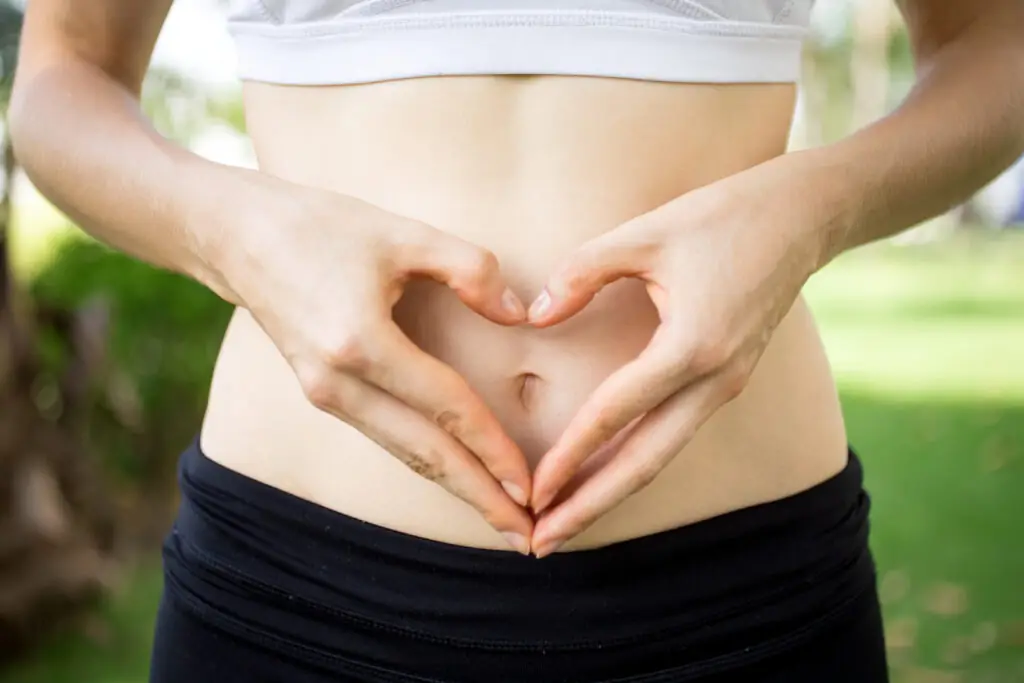
The easiest possible way to get hydrated is to drink about 2 liters (8 glasses) of water per day. You can also use such water-rich fruits as watermelons and cantaloupes (as well as such vegetables as cucumbers) to stay well-hydrated.
To sum it up: if you want to relieve constipation, use prunes, dried apricots, avocados, raspberries, blackberries, watermelons, and cantaloupes.
What Fruits Are Good for Digestion?
When it comes to digestion, there is the Big Three of fruits that contain enzymes that help break down proteins:
- Kiwifruit. This fruit contains actinidain, an enzyme that can markedly speed up the digestion of proteins in meat and dairy products.
- Pineapple. This fruit is extremely rich in bromelain, an enzyme that aids in digestion.
- Papaya. Papaya contains papain, an enzyme that helps break down proteins.
It needs to be said, however, that to get as high quantities of the digestion-aiding enzymes as possible, you need to consume these fruits raw. Canned pineapples lose a lot of their bromelain; what’s more, they contain copious quantities of added sugars that can overload your body with empty calories and lead to weight gain.

In addition to being important for enjoying regular bowel movements, dietary-fiber-rich fruits, and vegetables provide food for beneficial bacteria that live in your gut and directly influence the health of the gastrointestinal tract. For this reason, you need to enrich your diet with prunes, dried apricots, avocados, blackberries, and raspberries.
To sum it up: to improve digestion, eat raw kiwifruits, pineapples, and papayas after your meals and eat prunes, avocados, dried apricots, raspberries, and blackberries every day.
What Fruits Are Good for the Brain Function and Energy?
All B vitamins are extremely important for the nervous system and cellular energy. For instance, B6 is used by the body for the synthesis of such important neurotransmitters as gamma-aminobutyric acid (GABA), norepinephrine, dopamine, epinephrine, and serotonin. Low levels of folate (vitamin B9) were linked to dementia and cognitive impairment.
What’s more, it was demonstrated that a deficiency of such an essential mineral as magnesium could lead to such conditions as pathological anxiety and cause a wide range of neuromuscular diseases.
Here are the fruits that can be viable sources of B vitamins and magnesium:
- Avocados. They are extremely rich in vitamins B5, B6, and B9 and contain measurable quantities of vitamins B2, B3, and B1. Avocados are also known to contain magnesium.
- Dried apricots. They are moderately rich in vitamins B3, B5, B6, and magnesium.
- Prunes (dried plums). Prunes offer noticeable quantities of vitamins B3, B3, B5, B6, and magnesium.
- Bananas. They are a very good source of vitamin B6 and also contain moderately high quantities of magnesium.
- Blackcurrant. While mostly being famous for its vitamin C and iron content, blackcurrant also contains some amounts of vitamins B5 and B6 as well as magnesium.
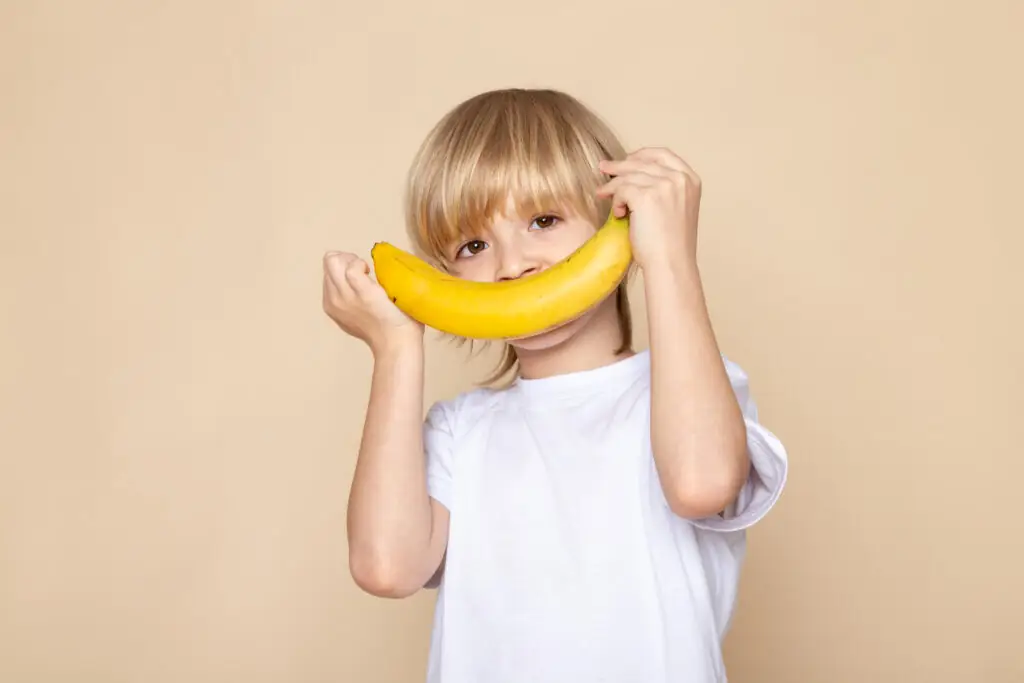
To get even more B vitamins from food sources, enrich your diet with nuts (peanuts, walnuts, and others), seed kernels, and such vegetables as chickpeas, asparagus, broccoli, and beets.
To sum it up: to improve your brain function and get energetic, use avocados, dried apricots, prunes, bananas, and blackcurrants.
What Fruits Are Good for Headaches?
Persistent headaches can be a symptom of a wide range of very serious conditions (like, for example, brain tumors). While the above-listed fruits that aid the brain and nervous system can (to some extent) help reduce the intensity of your headaches, if you suffer from them for a prolonged period of time, see a doctor without delay.
What Fruits Are Good for the Heart and Lowering Blood Pressure?
Here are the fruits you can use to improve your heart health and reduce blood pressure (although their effect is limited comparing to medications and dietary supplements):
- Watermelons. Watermelons contain citrulline — an amino acid that is essential for the synthesis of nitric oxide, a compound that your body uses to reduce blood pressure. Unfortunately, there is more citrulline in the rinds of the fruit than in its flesh. The good news, however, is that contrary to popular misconception, the rinds are perfectly edible.
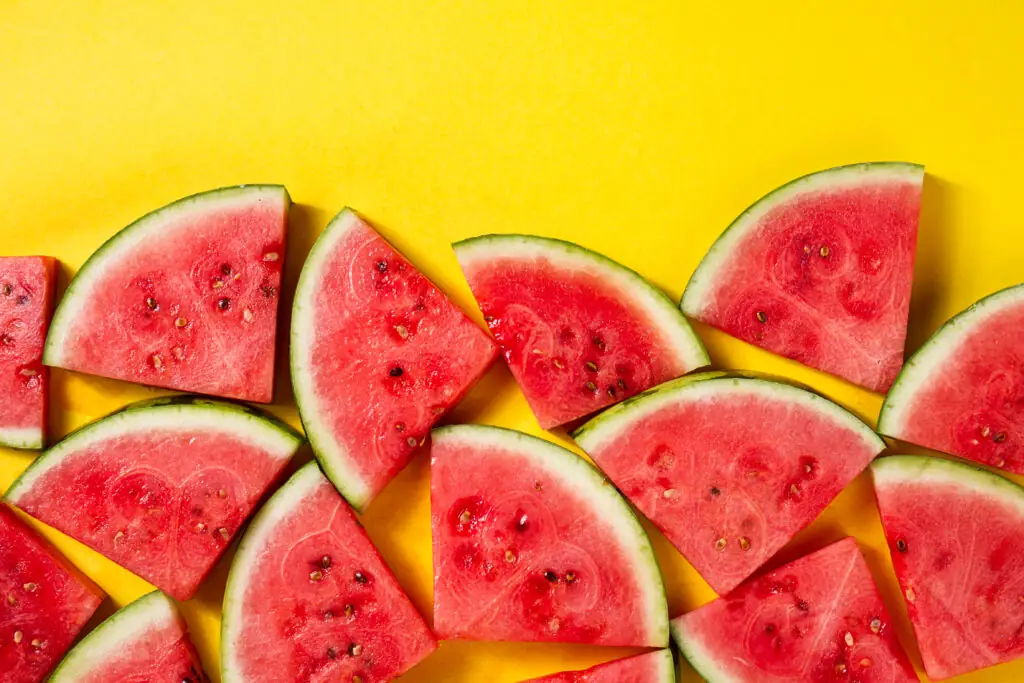
- Blackcurrants, lemons, limes as well as kiwifruits, and papayas contain copious quantities of vitamin C that protects nitric oxide from breaking down because of the impact of free radicals.
- Dried apricots, avocados, and mangos contain lots of vitamin E, which is also famous for its antioxidant properties.
- Berries. Strawberries, blueberries, raspberries, and blackberries are rich in natural antioxidants like anthocyanidins which can also reduce the risk of heart disease.
To sum it up: to reduce blood pressure, use watermelons (eat them with rinds), blackcurrant, lemons, limes, kiwifruits, papayas, dried apricots, avocados, mangos, strawberries, blueberries, raspberries, and blackberries.
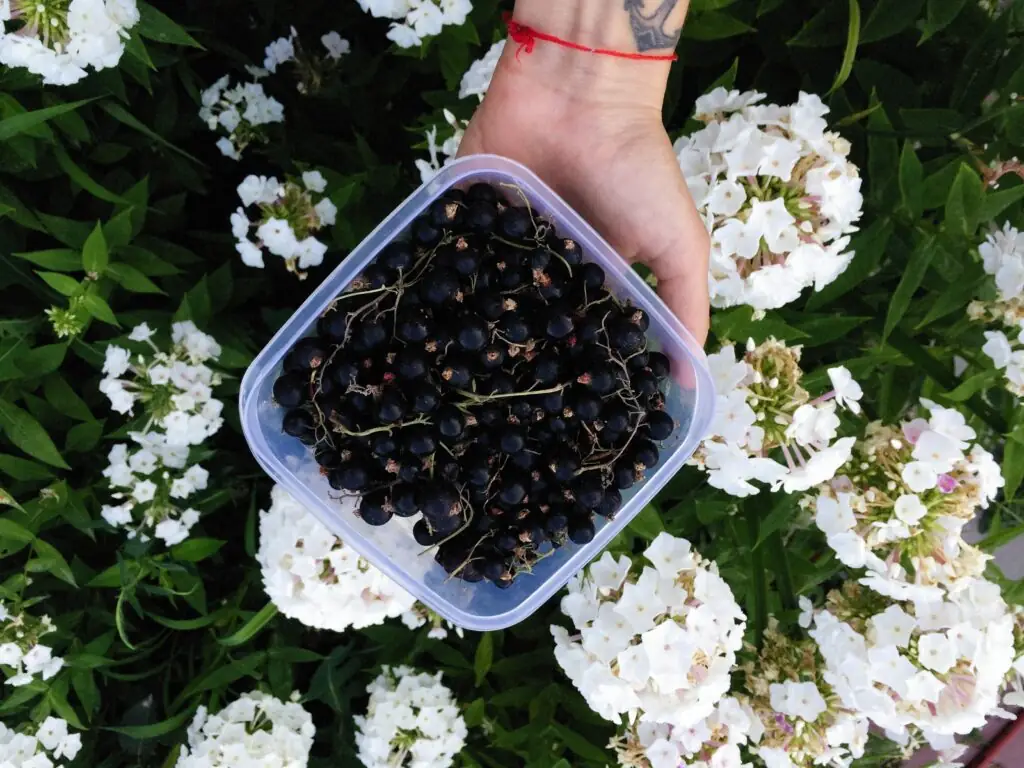
What Fruits Are Good for Lowering High Cholesterol?
High cholesterol levels can be very detrimental to your heart health. To bring them down, use these fruits:
- Avocados. There are studies that demonstrate that eating one avocado a day (and, especially, substituting avocados for other fats in your diet) can noticeably lower the levels of ‘bad’ LDL cholesterol.
- Grapes and berries like blueberries, raspberries, blackberries, and strawberries. All of them contain copious quantities of anthocyanidins and various other phenolic compounds that were demonstrated to reduce cholesterol levels.
- Apples. Apples are rich in a soluble fiber called pectin which is one of the better-known cholesterol-lowering compounds. Other fruits that are also rich in pectin are grapes, lemons, limes, and strawberries.
To sum it up: to decrease the levels of ‘bad’ LDL cholesterol, use avocados, apples, grapes, lemons, limes, grapefruits, and strawberries.
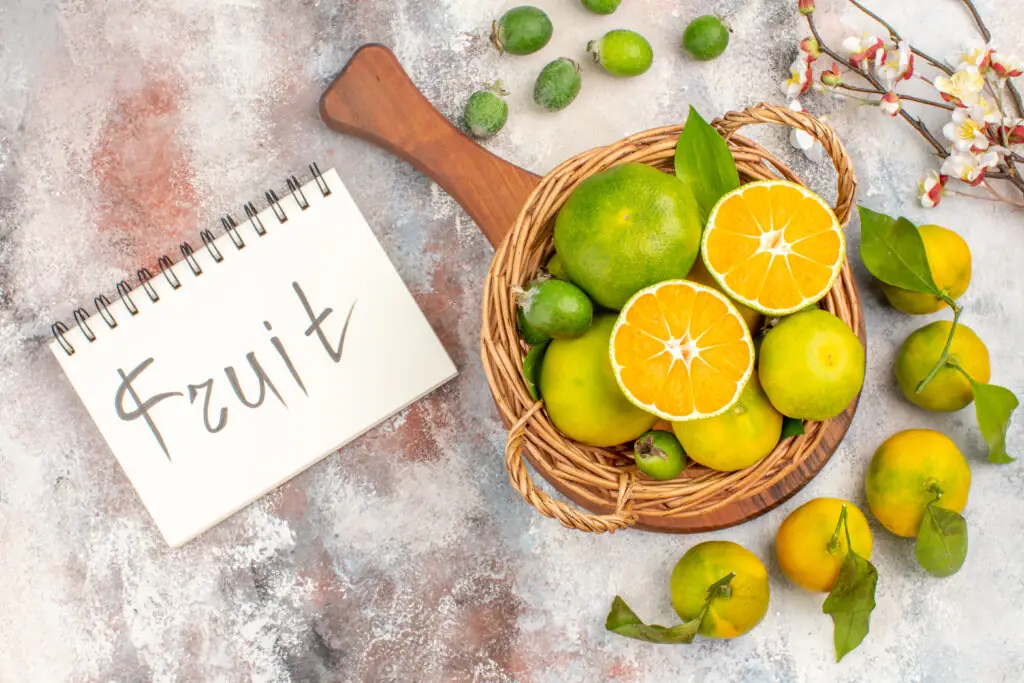
What Fruits Are Good for Type 2 Diabetes?
Fruits are naturally rich in sugars and tend to have higher glycemic indexes. For this reason, it is not possible to list fruits which are good for diabetics in general: every individual health condition needs to be evaluated by an experienced health practitioner.
That being said, it is very likely that your doctor will likely allow you to enjoy avocados, as they are one of the rare examples of a fruit that is both low in sugar and high in vitamins, dietary minerals, and healthy fats.
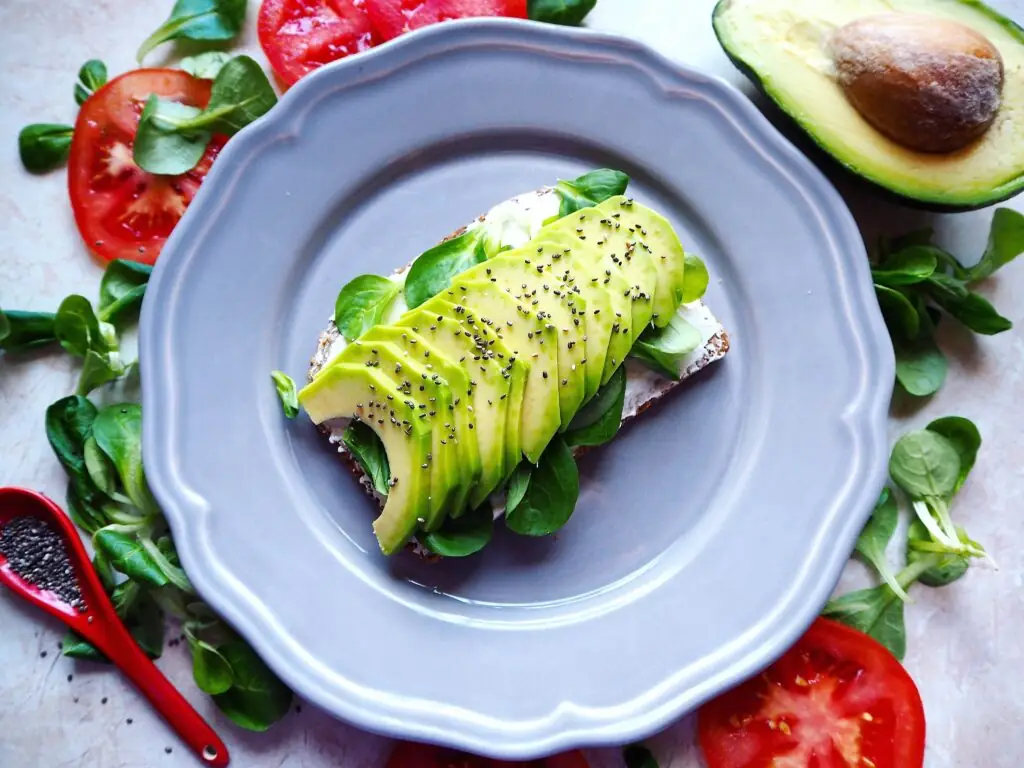
What Fruits Are Good for the Liver
If you have a liver condition, you need to significantly reduce your intake of alcohol, salt, added sugars, refined carbohydrates, and saturated fat.
Recent research demonstrates that the addition of avocados to a diet can lead to marked improvements in liver tests. Watermelons (and such vegetables as cucumbers) are extremely rich in water that helps you stay hydrated and acts as a solvent for evacuating toxins from the body. What’s more, if you wonder what fruits are good for kidneys, watermelon can be an ideal choice, as it helps the liver process ammonia (residual product of protein digestion), which in turn eases the strain on the kidneys.
To sum it up: to help your liver and kidneys, use avocados and watermelons.
Now you know what fruits are good for what conditions. Still, no fruit is a magic bullet: it is important that you eat a balanced diet and fit regular exercise into your daily routine.